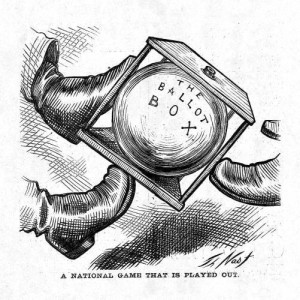 In August 2011, The League of Women Voters of Wisconsin publicly announced its intention to file a lawsuit challenging the constitutionality of the new Wisconsin Voter ID law. While no complaint has been filed as of date, and it is undoubtedly foolish predict the likelihood of success of any lawsuit without first reading the complaint, one would expect the promised lawsuit to face a hostile reception in the courts. This statement does not mean that the Wisconsin Voter ID law reflects good public policy. Many people believe that it does not. Nor does the above statement mean that the existing judicial precedent focusing on state voter ID laws does a particularly credible job at analyzing the constitutional issues raised by this type of legislation. Many will argue that the existing precedent is flawed. However, the current legal landscape is what it is, and the fact remains that any future legal challenge by the League of Women Voters seems unlikely to succeed.
In August 2011, The League of Women Voters of Wisconsin publicly announced its intention to file a lawsuit challenging the constitutionality of the new Wisconsin Voter ID law. While no complaint has been filed as of date, and it is undoubtedly foolish predict the likelihood of success of any lawsuit without first reading the complaint, one would expect the promised lawsuit to face a hostile reception in the courts. This statement does not mean that the Wisconsin Voter ID law reflects good public policy. Many people believe that it does not. Nor does the above statement mean that the existing judicial precedent focusing on state voter ID laws does a particularly credible job at analyzing the constitutional issues raised by this type of legislation. Many will argue that the existing precedent is flawed. However, the current legal landscape is what it is, and the fact remains that any future legal challenge by the League of Women Voters seems unlikely to succeed.
A. The Right to Vote Under the U.S. Constitution
The text of the United States Constitution does not expressly guarantee the right to vote. Nonetheless, in Harper v. Virginia State Board of Elections the United States Supreme Court ruled that the right to vote in state elections is a fundamental right protected by the Equal Protection clause of the United States Constitution. A large body of precedent has reaffirmed the primacy of the right to vote under our constitutional structure, holding that the ability to vote cannot be arbitrarily abridged or denied to groups of otherwise legitimate voters.
Notwithstanding the recognition that the right to vote is fundamental, the United States Supreme Court has declined to apply strict scrutiny to all election regulations which place some minor, even-handed burden on the ability to cast a ballot.


